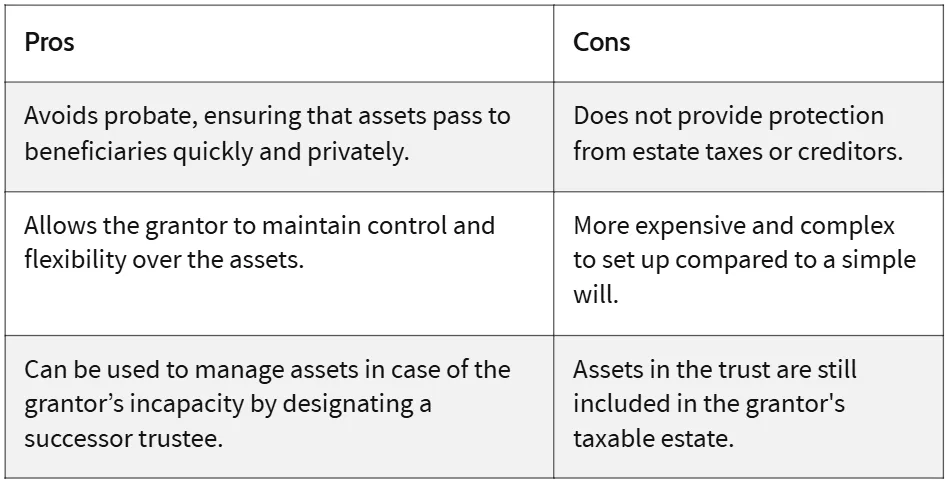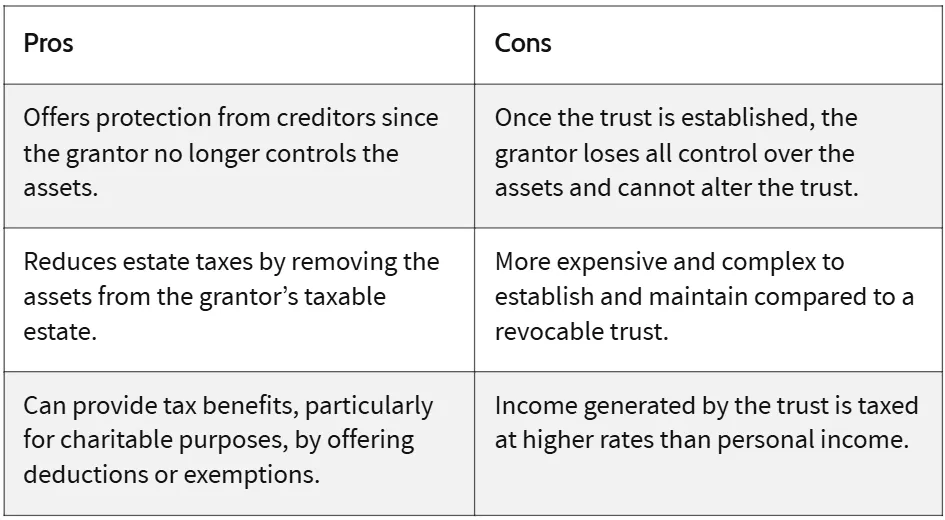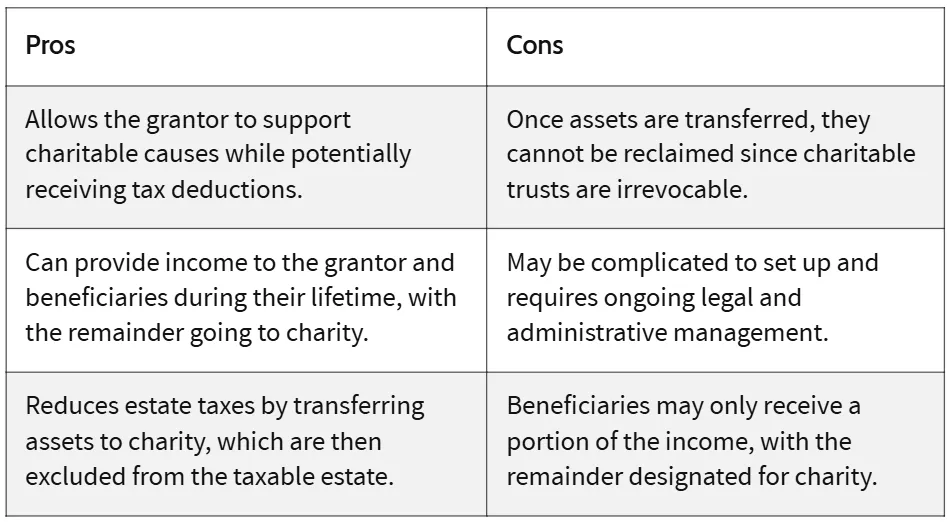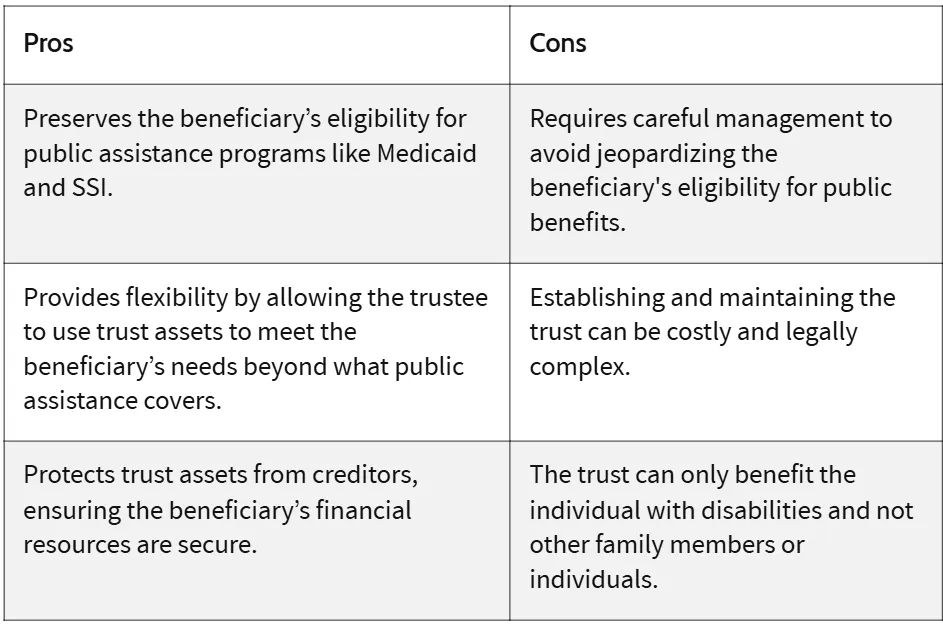Types of Trusts
Revocable Trust
A revocable trust, or living trust is created during the grantor's lifetime and can be altered, amended, or revoked at any time. The grantor retains control of the assets in the trust and can use, sell, or transfer them as desired. Because the trust is revocable, it does not provide asset protection against creditors but offers flexibility and control during the grantor's lifetime. Assets in a revocable trust pass outside of probate but are included in the grantor’s taxable estate.

Irrevocable Trust
An irrevocable trust cannot be altered or revoked once it is created. The grantor relinquishes control over the assets placed in the trust, and the assets are no longer considered part of the grantor's estate for tax purposes. This type of trust can provide significant asset protection and estate tax savings, but it offers no flexibility if the grantor wants to change the terms.

Charitable Trust
Tax law provides special benefits for certain irrevocable trusts that benefit charities while providing some economic return to their grantor or beneficiaries. A charitable remainder trust is an irrevocable trust that provides current income to the grantor or noncharitable beneficiaries and a partial tax deduction based on the valuation of the contributed assets. The contributed assets are distributed to charities upon expiration of the trust's term, which may be no more than 20 years or a term based on the life of one or more noncharitable beneficiaries.

Special Needs Trust
A special needs trust is a legal arrangement that enables individuals with disabilities to receive financial support from the trust for particular purposes without jeopardizing their eligibility for federal and state public assistance programs, such as Supplemental Security Income (SSI) and other benefits.

⭐Fast Fact⭐
Natural or adopted children have a statutory right to inherit but a will allows parents to disinherit a child. Provisions for disinheritance must comply with state laws. Detailed rules also enable a person to disinherit a spouse whether in a common law state, a community property state, or an equitable distribution state.
